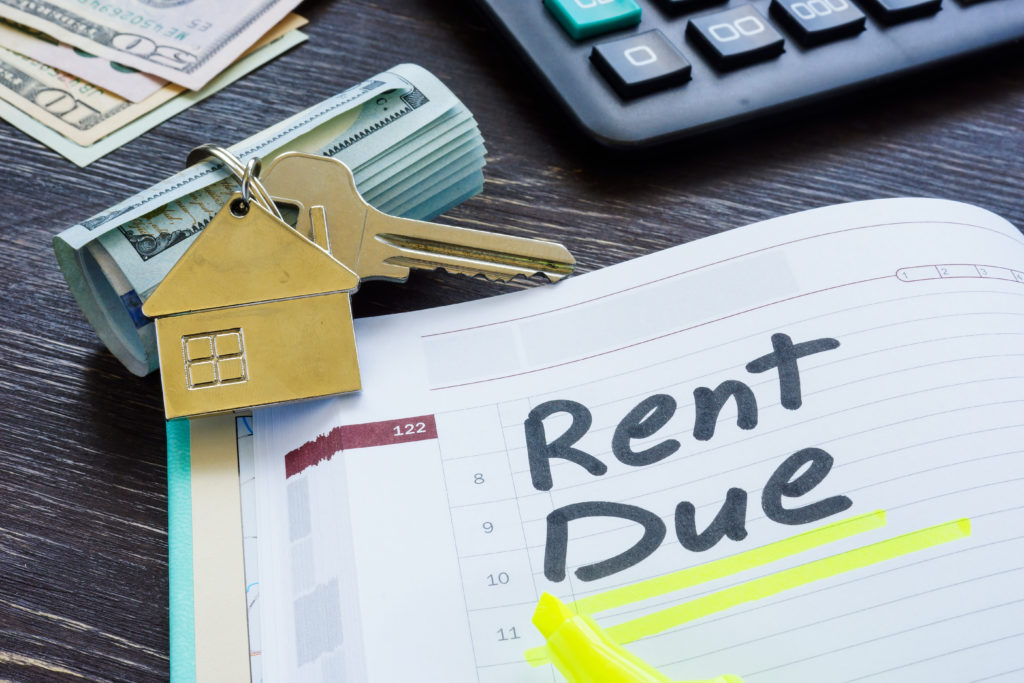The Costs of Eviction During the Pandemic
The last 18 or so months has undoubtedly presented a unique challenge for many property owners to say the least, with the fears of encountering a problem tenant only being exacerbated amongst record levels of rent arrears. Although the government introduced a series of measures to help support the private rental sector since the implementation of national lockdown in March of last year, many landlords condemned the moves saying they stripped owners of control over their properties, creating an opportunistic safe haven for rogue tenants.
These reforms to renting regulation came in through an eviction ban, drastically increasing the amount of notice landlords were required to provide to the occupants of their rental property before eviction proceedings could take place. Whilst these moves offered an invaluable lifeline to many renters that would have otherwise potentially faced homelessness thanks to an uncertain income and insecure employment, but with almost half of owners in the UK being dependent on the rental income from a single property, if the occupants struggled to pay the landlord’s financial stability would also be in question as a result.
But, with an eviction ban in place many rental owners felt that there was little they could do to address the problem. However, as the nation has emerged from lockdown the UK government has scaled back the changes to the eviction process introduced by the Coronavirus Act 2020. But now a market analysis carried out by London’s Benham and Reeves as shed light on the true financial burden undertaken by rental property owners looking to rid themselves of rogue tenants during the COVID outbreak.

Contents
Tenants Not Paying Rent During COVID
The market analysis explains that at the time where the minimum notice period for evictions was extended to six months, the average costs of monthly rent in the UK was set at £985, with rental property owners that were stuck with a rogue tenant seeing annual losses of £11,820.
However, the financial expense landlords experienced during the pandemic was not limited to their dwindling rental income, with the costs of refurbishment and conducting remedial work to rectify any damage caused by problem tenants amounting to an average of £20,000.
Further to this the report showed that on average owners spent upwards of £3,000 on legal fees alone when trying to reclaim their property from a rogue tenant; increasing the financial impact of problem tenants over the pandemic to over £35,000 per landlord. However, whilst the cost of renting in the nation’s capital has fluctuated since the first lockdown measures were introduced, unfortunately for owners, the typically increased costs of renting in London carries through to eviction costs, with the price of pursuing repossession being an average of £43,574.
Director of Benhgam and Reeves, Marc Von Grundherr commented, “The situation for landlords throughout the pandemic has been shocking and while eviction notice periods have now been reduced to four months, many continue to lose thousands in rental income every month due to rogue tenants and the long delays suffered while trying to evict them.”
“Rogue tenants are a landlord’s worst nightmare and unfortunately this nightmare rarely ends when they are finally evicted. More often than not, the property is in severe disrepair when it is finally repossessed and this is sometimes done out of spite, or simply to strip the property of materials they can then sell on.
“What’s more, the landlord will have usually suffered arrears prior to starting the eviction process and is still required to make mortgage payments out of their own pocket during a period where their property is generating no income.
“Unfortunately, legislative changes in recent years and particularly during the pandemic have focussed solely on the wellbeing of tenants and so the backbone of the UK rental market has been further weakened as landlords are left high and dry to pick up the pieces.”

How Much Does It Cost to Take a Tenant to Court for Rent Arrears?
It is no secret that the eviction process can be lengthy, not to mention costly for owners simply trying to reclaim their rental property. As of July 2021, the average cost of evicting a tenant was set at £1,300 to £2,000, with the major difference in costs being determined by if the landlord pursues the eviction through the county court or high court.
When going through the county court for the eviction landlords can expect to pay around £99 for simply service the appropriate notice to the tenant, with the possession order and bailiff enforcement coming at another £883 and £348 respectively.
However, if the tenants owe the landlord over £600 in missing rent the case can be sent to the high court where the costs of having bailiffs enforce the possession order comes at a dramatically higher £1,219.
Who Pays Court Costs for an Eviction?
As mentioned, reclaiming a rental property can be a costly endeavour for a landlord, but if their eviction case is successful can these costs be passed onto the tenant? Providing that the landlord has instructed their solicitor to claim for the associated legal costs it is possible for owners to recuperate some of their legal expenditure, but even with reclaiming the court fee as is allowed, landlords are unlikely to have the entire costs of pursuing eviction recovered.
Further to this, landlords are able to include a term within the agreement that explains they will claim all reasonable costs if they have to pursue repossession from the tenant. However, this will demand that the owner provides the court with a breakdown of the costs as to allow the judge to determine which fees are “reasonable” for the tenant to pay.
How Long Do Bailiffs Take To Evict a Tenant?
When seeking to repossess a property from a tenant, if the occupant is reluctant to leave by the given date the landlord is able to turn to the courts in order to obtain a Warrant of Possession, allowing them to employ the services of the County Court Bailiffs.
Once the owner makes an application for the Warrant of Possession, they will be issued with an appointment date, typically 4 to 6 weeks after the application is made. The bailiffs will provide the occupants of the property at least two weeks’ notice before they will carry out the eviction. If the residents have still failed to vacate the property by this date the bailiffs will remove them from the premises and reclaims the property for the landlord.
With this being said if a landlord wishes to gain possession of the property faster, they may try and transfer the eviction case to the high court. For this to take place the landlord will need to ask for the case to be transferred during the initial possession hearing at the county court, but the decision is ultimately down to the judge’s discretion. This transfer is more likely to succeed if the occupants of the rental property have accumulated a significant amount of arrears, or they are the cause of numerous antisocial behaviour complaints. It is worth mentioning that whilst eh high court may yield faster results for landlord this does come at an additional cost.
Why continue paying thousands each year in commission to let your property? With 97% of landlords recommending our services, and with over 50,000 tenants joining our rental community in the last year alone PropertyLoop is welcoming a new era of renting.
The PropertyLoop platform establishes the trust, transparency and personal service that has been lost from the renting sector. We are anything but another faceless corporation looking to profit from your investment, but a community founded on expertise and ambition.
We offer landlords complete clarity on available specialists through a landlord controlled rating and review system, giving users complete confidence of your PropertyPro’s proven results in finding owner’s ideal tenants faster.
With PropertyLoop landlords will have everything they need to let out their rental from start to finish, with no hidden fees, financial barriers or catches; only a revolutionary new way to let.

